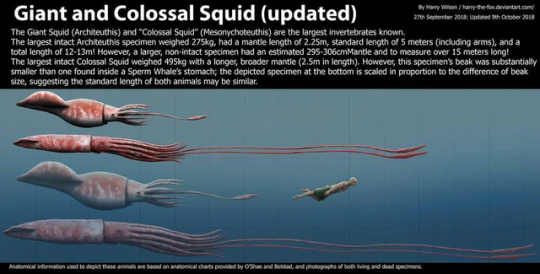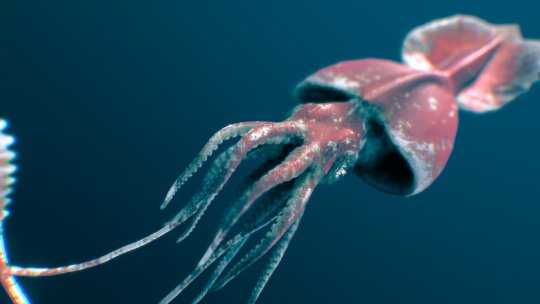#japetus
Explore tagged Tumblr posts
Text


mythology stuff im prolly doin nothin with. here's some titans
#mythology#greek mythology#okeanos#oceanus#koios#coeus#krios#crius#hyperion#iapetos#japetus#theia#rhea#themis#mnemosyne#phoebe#tethys#kronos#chronos#my ocs
53 notes
·
View notes
Text

mb i should be online




more art
bright colors + vent art below




#ultrakill#earthmover#ultrakill earthmover#medi+!!#leviathan ultrakill#ultrakill leviathan#well i tried from memory atleast#minos ultrakill#sisyphus ultrakill#ohmygod they all look so weird#v1 ultrakill#more of my kinsona uhhh#JAPETUS DOESNT HAVE A TAG NOO#NOR TOWER GALACTICA WAHHR
26 notes
·
View notes
Text
Back in 2021 the Science Museum promoted their “never been seen” project, where you could be randomly assigned an item from their online collection which had zero clicks—then you got a pixelated image you could click on to get details—it was a nice way of engaging people with unappreciated items
I clicked and got a rather unexciting looking oblong
I clicked on it and got a calling card which was described as belonging to Japetus Steenstrup

Carte de Visite portrait of Japetus Steenstrup
Now call me weird (you wouldn’t be the first) BUT that name rang a bell, the sort of bell Sir Ralph the Rover might hear ringing his knell*
i checked, and then I contacted the Science Museum to let them know that this Japetus was no other than Kraken-man!
And the Science Museum (to my utter delight) let me know they’d updated their description accordingly:

Yay Science Museum!
*Sir Ralph the Rover tore his hair,
He curst himself in his despair;
The waves rush in on every side,
The ship is sinking beneath the tide.
But even is his dying fear,
One dreadful sound could the Rover hear;
A sound as if with the Inchcape Bell,
The Devil below was ringing his knell.
Poem: Inchcape Rock, Robert Southey
4 notes
·
View notes
Text

Why Is the Elusive Colossal Squid So Hard to Come Across?
Though rarely seen, the colossal squid lurks deep beneath the surface.
We’ve known about the colossal squid for nearly 150 years. Zoologist Japetus Steenstrup first reported on the species in 1857 after reading reports of it washing up on ocean shores. But there’s still a lot that we don’t know about it because it’s so hard to study. Its reproductive patterns, mating and hunting patterns are still largely unknown because we hardly ever see it in action. Nonetheless, ever since Twenty Thousand Leagues Under the Seas, we’ve been captivated by this supersized cephalopod.

As long as a semi-truck and weighing as much as a ton — the colossal squid lives up to its name. With a massive beak and eyes the size of a human head, this enormous animal with eight arms and two extra-long tentacles has mainly remained elusive for much of human history. But in recent years, as humans have become better equipped to dive deeper into vast swaths of unchartered oceans, we’ve enjoyed a few colossal squid sightings...
Read more: https://www.discovermagazine.com/planet-earth/why-is-the-elusive-colossal-squid-so-hard-to-come-across

421 notes
·
View notes
Text

Made a plush of my persona: Japetus.
14 notes
·
View notes
Note
All the basics of Greek myth
The gods/godesses their roles,ther relationship etc etc
Okay. So first of all we all know about the 12 Olympians, i.e., Zeus, Hera, Poseidon, Demeter, Artemis, Apollo, Ares, Athena, Aphrodite, Hermes. Hephaestus and either Hestia or Dionysus, plus Hades.
Now before these Olympians there were the Titans, which included Kronos, Rhea, Oceanus, Coeus, Japetos, Crius, Hyperion, Theia, Themis, Tethys, Phoebe, and Mnemosyne, all of whom came from the Primordials, Ouranos and Gaia.
Along with them the other primordial gods included Khaos, Tartarus, Erebus, Eros, Nyx, Aether, Hemera, Pontus and Ourea.
Now this is an extremely brief explanation of these three generations of deities. I’mma get into a little more detail into their relations by whipping out Hesiod’s Theogony/the Greek Creation Myth (cuz his version is considered the standard creation myth for this pantheon till date), which sums about everything up pretty well actually so… Kudos to our fellar.
So according to this myth, in the very beginning, there was only chaos, from which we get the personified and deified version of it called Khaos. But soon after Gaia, Eros and Tartarus pop up, and then Khaos creates two more deities, namely Erebus and Nyx, who then, together, proceed to create Hemera and Aether, while Gaia creates Ouranos to partner up with, and they both, again together, whip out
The male titans, namely Kronos, Coeus, Japetus, Crius and Hyperion.
The female titans, namely Rhea, Themis, Tethys, Phoebe and Mnemosyne.
Three cyclopses, namely Brontes, Steropes and Arges.
Three Hekatonchieres (monstrous giants of immense strength and power, each having fifty heads and a hundred arms), namely Briareos, Kottos and Gyges.
Now all of these three sets of kids have one common thing, hating on Ouranos, for some reason that gets later uncovered. The reason is mostly him kidnapping his monstrous-looking kids and hiding them in secret places under the Earth (which, here, is Gaia).
Gaia got sick of this shit and produced a sickle out of adamant and asked her kids to teach Ouranos a lesson, but among these kids, only Kronos stood up to do it and so he did. Hid inside Gaia and when Ouranos came to lay with his wife, his lil kid popped up and castrated him, his two little thingies falling into the ocean, leading it to foam, and from that foam was born our beloved Aphrodite. Sensational. From his blood arose the Erinyes (chthonic goddesses of vengeance), the Giants and the Meliai (nymphs of the ash tree).
Now Kronos had full control over the cosmos from Ouranos, and was producing kids (i.e., Hestia, Poseidon, Demeter, Hera and Hades. Zeus wasn’t born yet) with Rhea. But his dad and Gaia had prophesized that one of his own kids would overthrow him, and from there we get the famous Kronos-swallowing-his-kids myth. And ofc, Zeus gets saved from the swallowing thingy with the help of his mom and grandparents, and then raised in seclusion in a cave below Mount Aigaion in the city of Lyktos of Crete. Also Kronos doesn’t know about this cuz Rhea wrapped up a huge stone in baby’s clothes and gave it to him saying it was the last kid, aka, Zeus.
(Chiron is also one of Kronos’s kids, and hence Zeus’s half-brother, paternally cuz Kronos once turned himself into a horse to mate with the Oceanid nymph, and one of the daughters of Oceanus and Tethys, Philyra, who mated with him in the usual human-nymph form, and hence we get him as a centaur.)
After Zeus grew up fully, he forced Kronos (Gaia did something to help with this, like give him some kinda poison secretly to make him puke his kids out-) to release his siblings. He then released the Cyclopses (who were still trapped with the Hekatonchieres btw), and then gave him his signature thunderbolt. This is when the great war called the Titanomachy happened between the Titans and Zeus and his siblings, over the control of the cosmos. This war went on for years, and in the 10th year, Zeus even released the Hekatoncheires, who also helped him overthrow the titans. Zeus threw his thunderbolt at the previous generation of gods, hence defeating them and throwing them into Tartarus, thus ending the war.
There was another threat to him tho, and it was Typhon, son of Gaia and Tartarus. But Zeus defeated him too and threw him into Tartarus as well.
Then my mans got elected as the king of gods (as he should), and had his first wife Metis. But after knowing that he had the same fate as Kronos, i.e., a son of Metis would overthrow him, he swallowed his wife (while she was pregnant with Athena, and hence later on we see Zeus HIMSELF giving birth to a fully-grown Athena from his mind) and that’s how he ended the cycle of succession. Smart move but I need justice for Metis >:<
Now for the new generation of Olympians, i.e., Artemis, Apollo, Ares, Hermes, Dionysus and Hephaestus (also let’s add Persephone too), here’s how it goes. (Athena and Aphrodite were already covered above)
Apollo and Artemis were twin kids of Zeus’s 6th wife, Leto, who was the daughter of Coeus and Phoebe.
Persephone was born from the union of Zeus and Demeter. (there are other versions to this myth too)
Dionysus was born from the union of Zeus and Semele (a mortal woman), but he was again stitched to Zeus’s thigh to save him from Hera, who was deadlocked in killing him (cuz ofc Zeus cheated on her with another woman), and later births Dio himself. (there are other versions to this myth as well. For example, another myth says he was born from the union of Zeus and Persephone.)
Hermes was born from the union of Zeus and Maia (Atlas’s* daughter)
Ares, Hebe and Eileithyia were born from Zeus and Hera.
(*Atlas was one of the kids of Japetos and Clymene, who’s an Oceanid, and hence one of the daughters of Oceanus and Tethys.)
Now I haven’t mention what these deities are the gods of, because even though they are known for maybe one of two things they govern over (like Athena for wisdom and war, or Apollo for sun and music), their designations are actually pretty broad, and this post is long enough so ykw I’mma ask you to check out theoi.com and the theogony section of Wikipedia for further info :)
Thanks for the ask I had fun writing this lmao. (Might’ve made errors or stuff so correct me in case yall spot any)
#greek mythology#greek gods#greek titans#theogony#hesiod#creation myth#greek myths#ancient greek mythology#greek goddesses#olympians
44 notes
·
View notes
Text

Los orígenes del legendario Kraken-
Del folklore Nórdico
El Kraken probablemente sea el monstruo más grande jamás imaginado por la humanidad. En el folclore nórdico se dice que se le puede ver desde Noruega hasta Islandia, y aún hasta Groenlandia.
El Kraken tenía la costumbre de acosar a los barcos, y muchos informes seudocientíficos (incluidos algunos de oficiales navales) afirmaban que los atacaba con sus fuertes tentáculos. Si le fallaba esta estrategia, la bestia empezaba a nadar en círculos alrededor de la nave, creando un fuerte remolino para hundirla. Por supuesto, para ser apreciado como tal, a un monstruo tiene que gustarle la carne humana, y las leyendas cuentan que el Kraken podía devorar de un solo bocado a toda la tripulación de un barco. Pero a pesar de su temida reputación, el monstruo también reportaba beneficios: nadaba acompañado de enormes bancos de peces, que caían en cascada desde su espalda cuando emergía del agua. Los pescadores valientes podían así acercarse a la bestia, arriesgando sus vidas, para asegurarse una abundante pesca.
La historia del Kraken se remonta hasta un relato escrito en 1180 por el rey Sverre de Noruega. Al igual que sucede con otras muchas leyendas, la del Kraken comenzó con un hecho verídico, los avistamientos de un animal real: el calamar gigante. Para los antiguos marineros la mar era traicionera y peligrosa, y escondía toda una horda de monstruos en sus inconcebibles profundidades. Cualquier encuentro con un animal desconocido podía adoptar entonces connotaciones mitológicas en las historias de aquellos marineros. Después de todo, el mito siempre crece de tamaño gracias a las narraciones.
Leyenda científica
La fuerza del mito creció de tal manera, que el Kraken todavía se podía encontrar en los primeros estudios científicos del mundo natural del siglo XVIII en Europa. Ni Carl Linnaeaus –padre de la clasificación biológica moderna- pudo evitarlo, incluyendo al Kraken entre los moluscos cefalópodos que aparecen en la primera edición de su innovadora obra Systema Naturae (1735).
Pero cuando en el año 1953 se encontró varado en una playa danesa un gigantesco cefalópodo, el biólogo noruego Japetus Steenstrup recuperó el pico afilado del animal y lo utilizó para describir científicamente al calamar gigante, Architeuthis dux. De este modo, lo que se había convertido en una leyenda entró oficialmente en los anales de la ciencia, regresando nuestra imagen del Kraken a la del animal que dio origen al mito.
Después de 150 años de investigaciones acerca del calamar gigante que habita en los océanos de todo el mundo, todavía se está debatiendo si representa a una sola especie o si existen hasta 20 especies distintas.
El mayor de los Architeuthis registrados alcanzó 18 metros de longitud, incluyendo su largo par de tentáculos; pero la inmensa mayoría de estos especímenes son mucho más pequeños. Los ojos del calamar gigante son los más grandes del reino animal, y resultan vitales en las oscuras profundidades en las que habita este cefalópodo (hasta los 1.100 metros de profundidad, tal vez, incluso, llegando a alcanzar los 2.000 metros).
Igual que ocurre con algunas otras especies de calamares, el Architeuthis dispone de bolsas en sus músculos que contienen una solución de amonio, de menor densidad que el agua marina. Esto le permite flotar bajo el agua. Es decir, puede mantenerse estable sin nadar de forma activa. Probablemente, la presencia del desagradable amonio en sus músculos haya sido la razón por la que no se le ha dado caza de forma masiva.
Durante muchos años los científicos debatieron sobre si el calamar gigante era un rápido y ágil cazador, como el poderoso y legendario predador, o si cazaba al acecho. Tras décadas de discusiones, en el año 2005 llegó la esperada respuesta gracias a las filmaciones, sin precedentes, de los investigadores japoneses T. Kubodera y K. Mori, que consiguieron grabar a un Architeuthis vivo, en su hábitat natural, a 900 metros de profundidad en el Pacífico Norte, demostrando que es un poderoso y rápido nadador que utiliza sus tentáculos para capturar a sus presas.
A pesar de su tamaño y velocidad, el Architeuthis tiene, a su vez, un predador: el cachalote. Las batallas entre esos titanes deben ser frecuentes, ya que es común encontrar cicatrices en la piel de estos cetáceos, dejadas por los brazos y tentáculos del calamar, los cuales tienen ventosas alineadas con afiladas estructuras quitinosas parecidas a dientes. Pero un Architeuthis, a pesar de que posee suficientes músculos en sus tentáculos como para aferrarse a su presa, nunca podrá superar a un cachalote en un “duelo”. Su única opción es la huida, cubriendo su retirada con la típica nube de tinta de los cefalópodos.
Aunque ahora sabemos que no se trata simplemente de una leyenda, el calamar gigante sigue siendo el animal más esquivo del mundo, lo cual también ha contribuido, en gran medida, a acrecentar su aura de misterio. Todavía hoy en día muchas personas se sorprenden al decscubrir que realmente existe.
Después de todo, pese a las numerosas investigaciones científicas, el Kraken todavía sigue vivo en la imaginación popular gracias a películas, libros y videojuegos, aunque a veces se cometan errores evidentes basados en los antiguos mitos, como en la antigua película épica de 1981 “Furia de Titanes” y en su posterior “remake” del año 2010. Representaciones como éstas han llegado a definirlo en la mente del público como una bestia al acecho de navíos hundidos y a la caza de descuidados buceadores.
Fuente: Rodrigo Buentalepe
7 notes
·
View notes
Photo


Little Personal take on the Roman Counterparts for the Greek Titanesses and Titans. Even I myself manage to come up with some Fan-Made Name Counterparts for some of these Other Gods instead of having the same counterparts have the same name as each other.
UPDATED: 11/4/2023; Since I no longer made a concept where Pontus and Thalassa were Titans (which I did regret making up that choice), I’ve decided to now stick with the Other Water Gods (who are the Parents of the Nereids) in my AU as Titans.
Titanesses and Titans (c) Greco-Roman Mythology SpongeBob Depiction of The Titans (c) Me
#spongebob squarepants#Roman Mythology#ops#saturn#moneta#euryphaessa#bellatrix#philomena#asia#docia#justitia#aelius#polus#tarak#japetus#nereus#doris
6 notes
·
View notes
Photo










Iapetus is the third-largest natural satellite of Saturn, eleventh-largest in the Solar System, and the largest body in the Solar System known not to be in hydrostatic equilibrium. Iapetus is best known for its dramatic "two-tone" coloration. Discoveries by the Cassini mission in 2007 revealed several other unusual features, such as a massive equatorial ridge running three-quarters of the way around the moon.
Iapetus was discovered by Giovanni Domenico Cassini, an Italian astronomer, in October 1671. He had discovered it on the western side of Saturn and tried viewing it on the eastern side some months later, but was unsuccessful. This was also the case the following year, when he was again able to observe it on the western side, but not the eastern side. Cassini finally observed Iapetus on the eastern side in 1705 with the help of an improved telescope, finding it two magnitudes dimmer on that side.
Cassini correctly surmised that Iapetus has a bright hemisphere and a dark hemisphere, and that it is tidally locked, always keeping the same face towards Saturn. This means that the bright hemisphere is visible from Earth when Iapetus is on the western side of Saturn, and that the dark hemisphere is visible when Iapetus is on the eastern side. The dark hemisphere was later named Cassini Regio in his honor.
The original dark material is believed to have come from outside Iapetus, but now it consists principally of lag from the sublimation of ice from the warmer areas of Iapetus's surface. It contains organic compounds similar to the substances found in primitive meteorites or on the surfaces of comets; Earth-based observations have shown it to be carbonaceous, and it probably includes cyano-compounds such as frozen hydrogen cyanide polymers.
source
Images: NASA/JPL; Gordan Ugarkovic, Ed, Kevin Gill
4K notes
·
View notes
Photo





-Titans (made in Pixie Scene Maker)
They are the sons of Gaia and Uranus and ruled the very ancient greek world.
Cronus
King of titans
Married to Rhea
Father of Zeus, Poseidon, Hades, Demeter, Hera, Hestia and Chiron
Hyperion
Titan of sun
Married to Theia
Father of Helios, Selene and Eos
Japetus
Titan of the underworld
Married to Asia
Father of Atlas, Epimetheus and Prometheus
Krius
Titan of cold
Married to Eurybia
Father of Astraeus, Pallas and Perses
Koios
Titan of wisdom
Married to Phoebe
Father of Leto and Asteria
0 notes
Photo

Iapetus
7 notes
·
View notes
Text



All butterflies were raised on a beautiful farm and were collected and preserved after they passed away and lived a full live🧚🏻♀️🦋
#witch#witchcraft#forest#green witch#spells#spellwork#tarot cards#crystals#eclectic witch#nature#pagan wicca#wiccan#wicca#butterflies#butterfly#witchblr#nature witch#natural#baeotus japetus#papilionidae#lyropterix apollonia#morpho sulkowski
146 notes
·
View notes
Text

WIP ariral model I'm working on. Temp clothing to help with design ideas. Based off of an OC of mine: Japetus.
10 notes
·
View notes
Photo

Peder Severin Krøyer (1851 – 1909) - Professor of zoology, Japetus Steenstrup gives a lecture, 1895, oil on canvas
Johannes Japetus Smith Steenstrup (1813-1897) was a influentual zoologist, biologist and professor in nineteenth-century Denmark. He was an expert on cuttlefish, barnacles and cephalopods. In 1842, he discovered the principle of the alternation of generations in some parasitic worms.
#P.S. Krøyer#Peder Severin Krøyer#Johannes Japetus Smith Steenstrup#Steenstrup#Japetus Steenstrup#biologist#professor#zoologist#scientist#portrait#natural science#denmark#norweigian painter#skagen painter#figurative painting#oil on canvas#oil painting#science lecture#1895#1890s#nineteenth century
1 note
·
View note
Text


Happy #CephalopodWeek! So you're probably wondering, "What does this monkfish? have to do with cephalopods?"
This illustration (left) of a Monachus Piscis is from Pierre Belon's 1553 edition of De Aquatilibus, a book of animals that live in and near the water. This "sea monk," based on Norwegian eyewitness accounts, was later thought to be a giant squid.
What, you don't see the resemblance?
Image 1 from: Pierre Belon. Petri Bellonii Cenomani De aquatilibus. Paris: Charles Etienne, 1553.
Image 2: Japetus Steenstrup's comparison of a common squid, ca. 1854. From Wikimedia Commons.
61 notes
·
View notes
